Beach Camping in the UK: What You Need to Know
If you love the sound of waves and the feel of sand under your feet, beach camping is the perfect way to combine nature and adventure. It sounds simple – park your motorhome, set up a tent, and fall asleep to the tide – but there are a few rules and tricks that can turn a rough night into a great memory.
Where to camp on UK beaches
First off, not every stretch of coastline lets you pitch a tent. Most public beaches are owned by local councils, and many have strict “no camping” signs to protect wildlife and keep the area tidy. The best bet is to look for designated beach campsites or caravan parks that sit right on the sand. Places like Perranporth in Cornwall, Whitby in North Yorkshire, and Llandudno in Wales all have nearby sites with facilities, power hooks, and waste disposal.
If you’re set on free camping, head to more remote spots where the council doesn’t enforce a ban. Hidden coves in the Scottish Highlands, the dunes around Suffolk, or the less‑trodden parts of the Norfolk coast often allow a night‑time pitch, but you’ll need to be discreet, leave no trace, and be ready to move on if a ranger shows up.
Staying safe and comfortable on the sand
\nSand isn’t the most stable ground for a tent, so bring stakes that are a bit longer than usual and a ground cloth to keep moisture out. A small tarp underneath can also protect the bottom of your sleeping bag from cold sand at night. If you’re in a motorhome, use a leveler kit – driving on sand can tilt the vehicle, making it hard to sleep and risky for cooking.
Weather changes fast by the sea. Pack a wind‑proof jacket, waterproofs, and a headlamp – darkness comes early and the wind can be biting. Check the tide times before you set up; you don’t want your bag floating away with the next high tide. And always have a plan for a quick exit – local authorities can ask you to leave at any time.
Finally, respect the environment. Bag all rubbish, use biodegradable soap for washing, and avoid lighting big fires on the beach. A small camp stove works fine, and most designated sites provide fire pits if you really need a flame.
With a little research and some preparation, beach camping can be an unforgettable way to explore the UK’s coastline. Pack your gear, choose a spot wisely, and get ready for sunrise over the sea – it’s an experience you’ll keep coming back to.
-
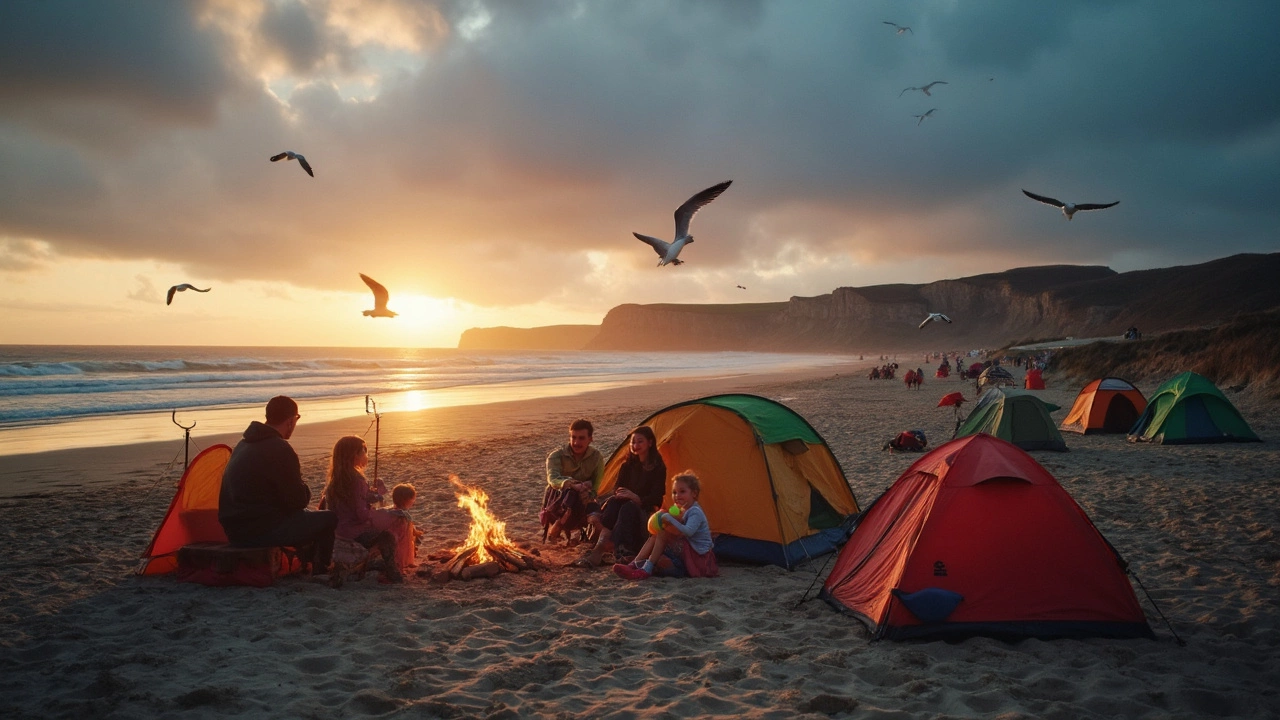 VIEW POST
VIEW POSTBeach Camping: Why People Love Sleeping Beside the Waves
Jun, 26 2025|0 CommentsDiscover why beach camping is so popular. Get insider tips, fun facts, pros and cons, and real-life inspiration for your next coastal camping trip. -
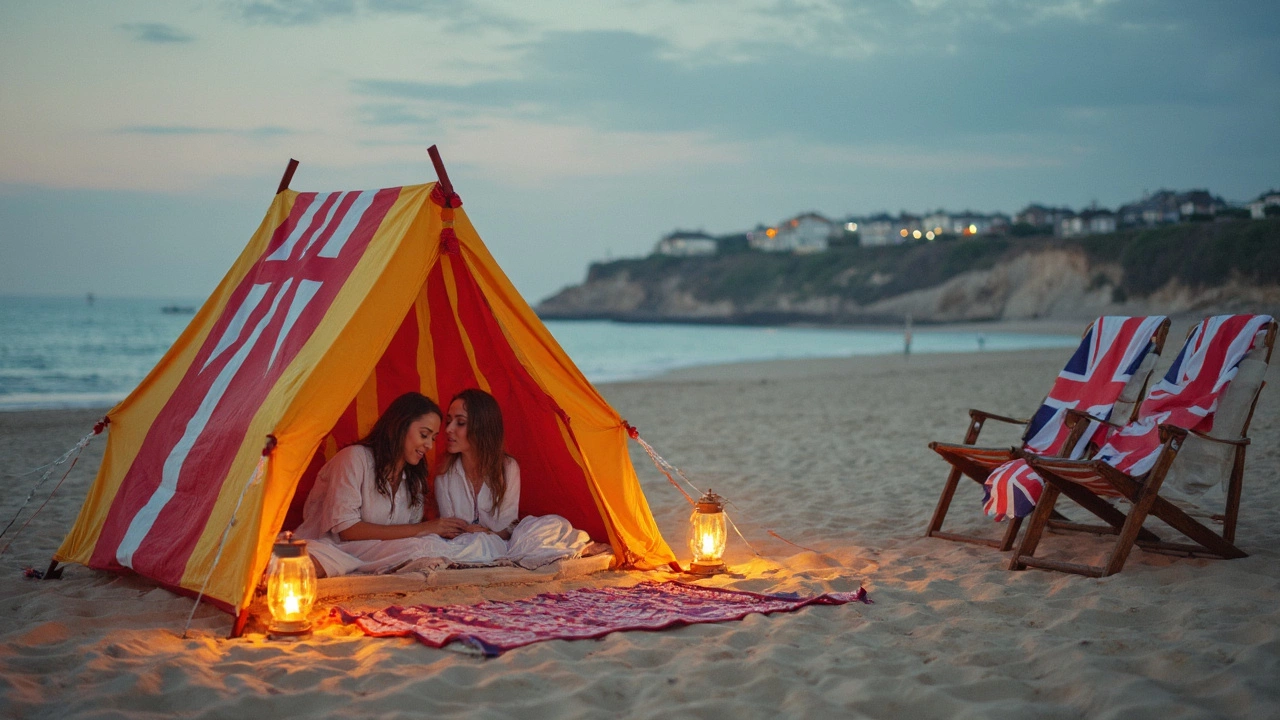 VIEW POST
VIEW POSTCan You Sleep in a Beach Tent? What to Know Before You Try
Apr, 24 2025|0 CommentsThinking about catching some sleep inside a beach tent? It sounds dreamy, but there’s a lot you should know first. This article breaks down if and how beach tents work for sleeping, the safety side of things, legal details you could get stuck on, and some real-world tips that could save your trip. You’ll pick up clever hacks for a better night’s rest and the most important dos and don’ts. Get ready to make your next beach camping trip as smooth as possible. -
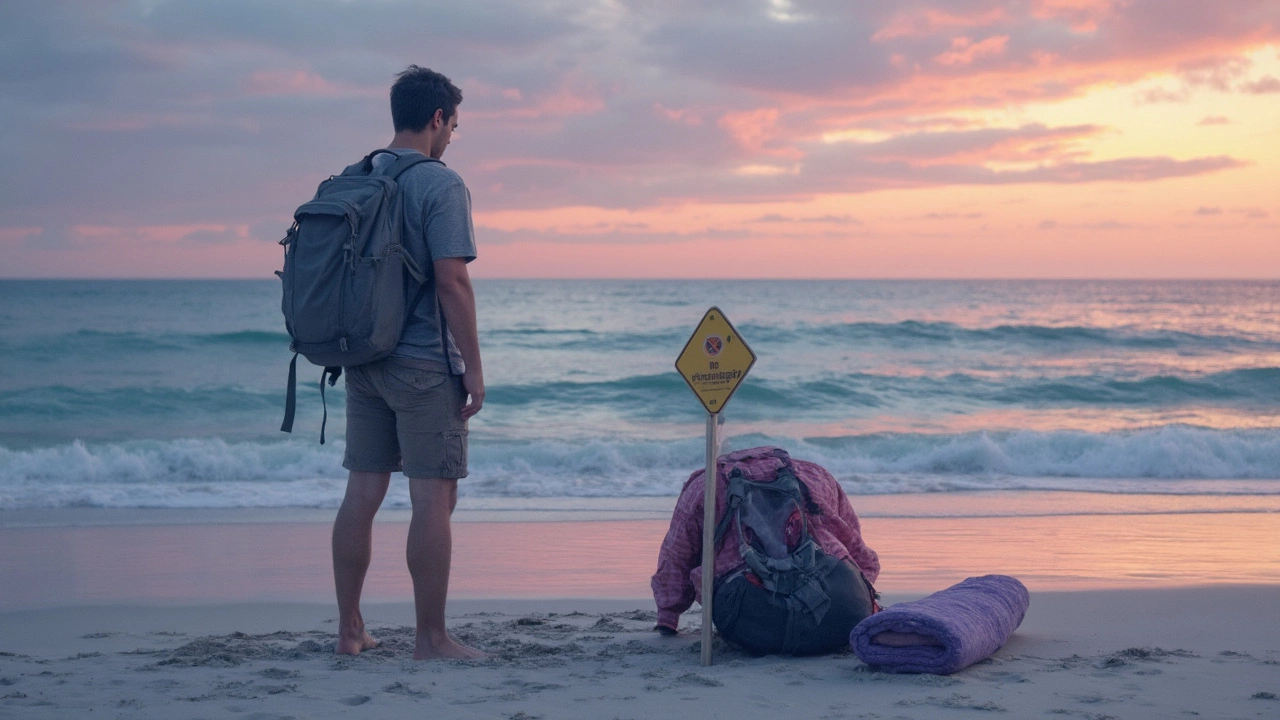 VIEW POST
VIEW POSTCan I Sleep on the Beach in Florida? The Real Rules and Best Alternatives
Apr, 17 2025|0 CommentsThinking about catching some sleep right on the sand in Florida? The rules here aren’t as easygoing as you might expect. This article breaks down whether it’s legal to sleep on Florida beaches, what can happen if you try, and which beaches actually allow overnight stays. You’ll also get tips for safe, comfortable beach camping and honest advice on what to expect when planning a sandy snooze in the Sunshine State. -
 VIEW POST
VIEW POSTWhere to Sleep on the Beach in South Carolina: A Guide to Beachside Campgrounds
Mar, 20 2025|0 CommentsWhen it comes to camping by the sea, South Carolina offers some stunning beachside spots. Whether you want a spot with amenities or a more rustic experience, there's a place for every camper. Sleeping on the beach can be a unique experience if you know the right places to go. Check out some insider tips and discover campsites where you can enjoy the sounds of the ocean as you drift off. Get ready for a beach campout you'll always remember. -
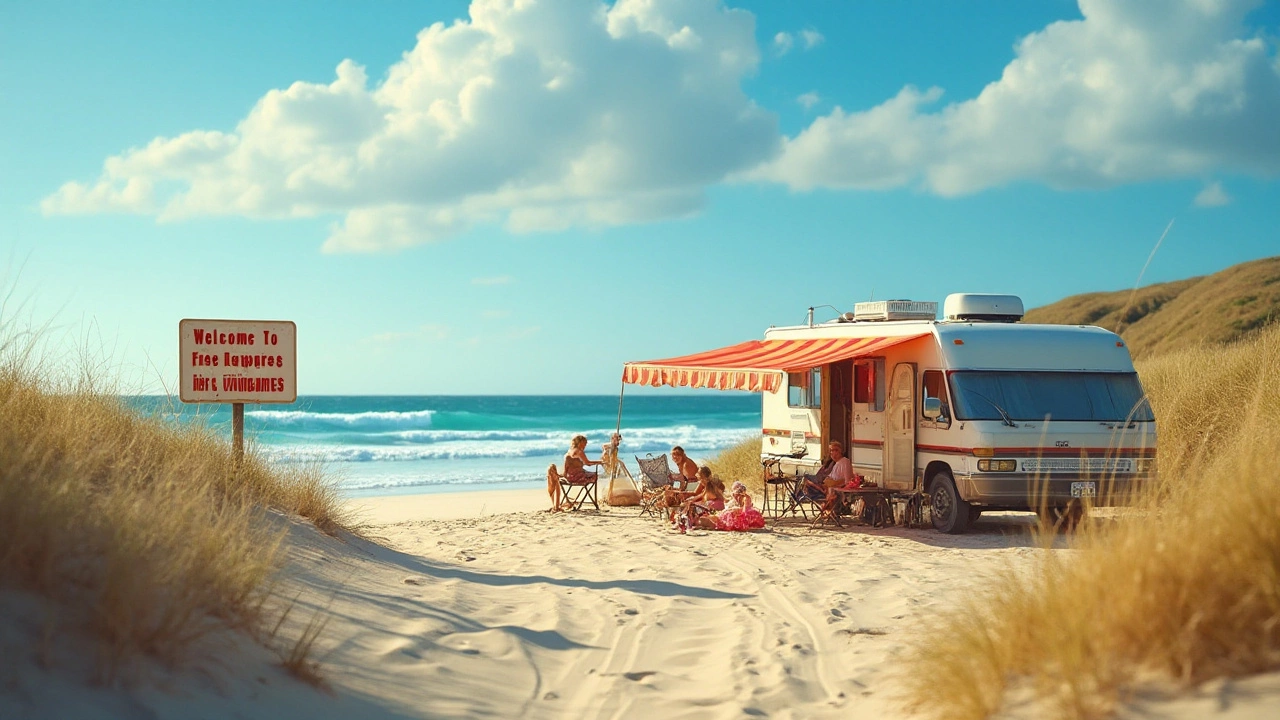 VIEW POST
VIEW POSTLegal Insights on Boondocking at Beach Campsites Across the U.S.
Dec, 14 2024|0 CommentsBoondocking, or free camping, offers a unique way to explore the natural beauty of beach areas across the United States. However, the legality of boondocking varies widely from state to state, with some places enforcing strict regulations. Whether you're an RV enthusiast or a budget traveler, understanding where you can legally camp without hookups is crucial. This article delves into state-specific laws, offering tips and insights to help you navigate the rules and enjoy your beachside adventures responsibly. -
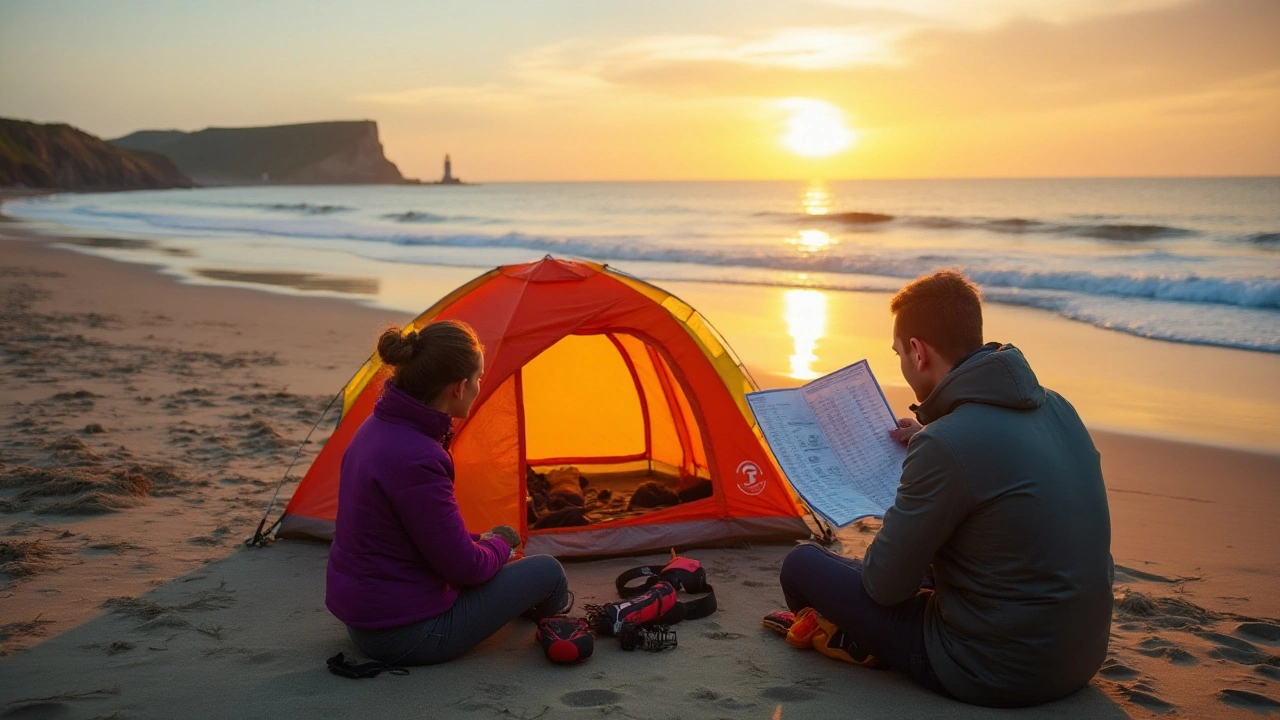 VIEW POST
VIEW POSTBeach Camping: How to Safely Pitch a Tent on the Shore
Oct, 20 2024|0 CommentsBeach camping can be a unique and rewarding experience, offering a chance to sleep under the stars with the sound of the ocean waves as your lullaby. Before setting up your tent on a sandy shore, there are important aspects to consider, such as local regulations, tide schedules, and safety tips. This guide will provide essential information on how to camp on a beach successfully. Whether you're a seasoned camper or a newbie, understanding the nuances of beach environments will enhance your adventure. Let's explore the magical world of seaside camping and discover the crucial points for a memorable and secure outing.